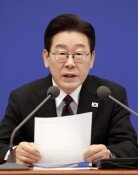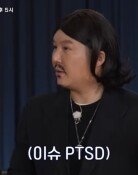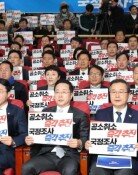Exchange Bank Understated Ratio Figure
Exchange Bank Understated Ratio Figure
Posted April. 12, 2006 02:59,
The understated Bank of International Settlements (BIS) capital adequacy ratio of Korea Exchange Bank (KEB), which was a critical factor in its acquisition by the U.S. private equity fund Lone Star in 2003, was in the eight percent range rather than the reported 6.16 percent, according to reassessment reports by the Board of Audit and Inspection of Korea.
A source from the board stated on April 11, Upon reassessing the BIS capital adequacy ratio, the range was closer to eight percent. He added, We are performing a final verification based on this value.
The official further stated, We conducted a reassessment of the basic information submitted in order to tally the BIS rate, and added, The decimal numbers may change in the process of verification, but the numbers are expected to be maintained at an eight percent rate. An institution is classified as financially unhealthy when its BIS ratio falls below eight percent.
The new results are expected to cause a sensation, as evidence indicates that Korea Exchange Bank was not financially unstable at the time it was taken over by Lone Star, pointing to speculations that the BIS ratio might have been manipulated.
If Lone Star had been involved in the ratio manipulations, its acquisition of the Korea Exchange Bank would in effect be nullified. The Board of Audit and Inspection will present its final reassessment results around April 15.
The board also confirmed that the Korea Exchange Bank and the Financial Supervisory Service (FSS) manipulated the BIS ratio through four series of e-mails and faxes after the 10 person meeting regarding the KEB takeover on July 15 2003. It is also investigating whether systematic ratio fabrication occurred between the heads of the KEB and the FSS.
According to statements issued during the Board inspections by Lee Gon-hak, head inspector of the Bank Supervision Department of the FSS, Paek Jae-heum, director of the Bank Supervision Department, ordered Lee on July 16, 2003, to prepare the predicted BIS ratio for late 2003 according to the worst case scenario in late June conditions.
After receiving the orders, Lee requested Huh (deceased), deputy section chief, to send a worst case scenario and a neutral scenario, and Huh sent a one page e-mail with a BIS ratio forecast of 5.42 percent on that same day.
On July 21, Huh sent five documents with a rate of 6.16 percent by fax, and Lee reported the statistics to Paek, who answered, This ratio is acceptable.
The board is looking into the possibility of calling upon the former Chairman of the FSS Lee Jung-jae and other officials of the Financial Supervisory Service. It is also planning to re-summon three key figures, including Lee Kang-won, former head of the Korea Exchange Bank, Byeon Yang-ho, former director of Financial Policies of the Ministry of Finance and Economy, and Kim Seok-dong, deputy vice minister of the Ministry of Finance and Economy.
Min-Hyuk Park mhpark@donga.com







